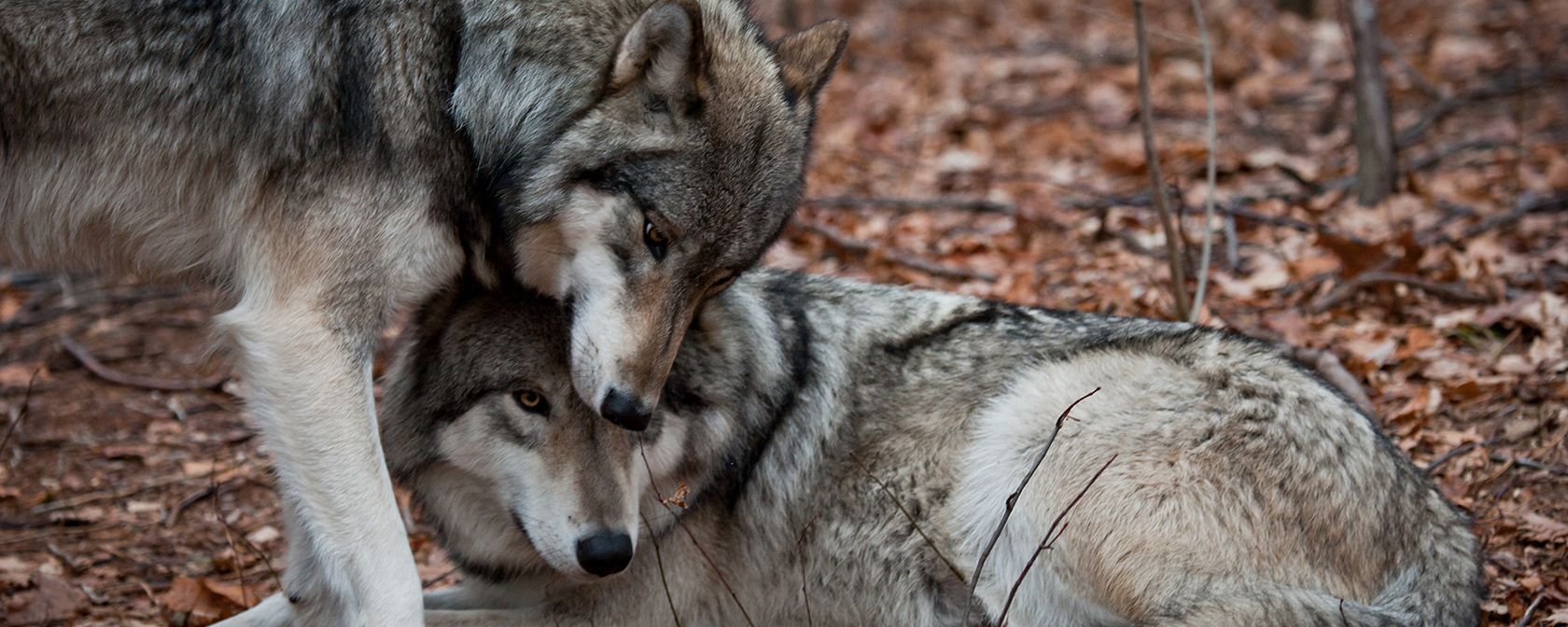By Sara Amundson and Kitty Block
In a heinous move that defies both science and common sense, the United States has prematurely lifted federal protections for gray wolves in the lower 48 states, giving them carte blanche to open trophy hunting seasons on these beloved native carnivores.
The Department of the Interior bulldozed this rule through despite the fact that nearly two million Americans left comments to register their opposition to it after it was proposed last year. But the agency, so beholden to trophy hunters in recent years, has clearly decided to ignore the American public. The Humane Society of the United States is putting the Department of the Interior on alert that they and their partners will challenge this rule in court to get these protections restored, as they have successfully done in the past.
Wolves were first given Endangered Species Act protections in 1974 after activities like trophy hunting and trapping, along with other manmade causes like habitat loss, led to dangerous drops in their populations around the country. Today they can only be found in only about 15% of their historic range in the contiguous United States. Scientists warn that delisting gray wolves now, when they still face threats to their survival, is sure to cause irreversible damage.
If states begin to open trophy hunting seasons on wolves, we don’t have to guess how bad the carnage is likely to get; we have already witnessed it in the handful of states where wolves have been delisted over the past decade. In 2011, Congress directed the U.S Fish and Wildlife Service to remove ESA protections for wolves in Montana and Idaho as a nod to agricultural and trophy hunting interests, and wolves in Wyoming lost their federal ESA protections in 2017. Since then, thousands of wolves have been massacred in these states. Even pups aren’t safe. This year, in Idaho, at least 35 pups, some as young as four to six weeks old, have been killed by trophy hunters, trappers, and state and federal agency personnel.
The killing has increased as these states have continued to relax their rules year after year. Idaho increased the number of wolves a single person can kill to 30, and expanded its wolf hunting season to last year-round in the southwestern and south central parts of the state and 11 months out of the year in the rest of the state. In Wyoming, wolves can be shot on sight in 85% of the state.
With their protections gone, wolves are likely to be most persecuted in areas where their populations are already fragile, like the Great Lakes region. When wolves there briefly lost their federal ESA protections in late 2011, nearly 1,500 were killed in just three seasons—including hundreds of pups. The killing would have continued but for a successful Humane Society of the United States lawsuit that returned wolves in this region to the endangered species list in 2014. In Wisconsin and Michigan, the wheels have already been set in motion to authorize trophy hunts despite overwhelming public opposition, and Minnesota could be close behind.
The trophy hunting of wolves is not simply a conservation problem; it is also a major animal welfare problem. This is unnecessary killing just for a head or hide on the wall and bragging rights, and it often involves immense animal cruelty. In the states that now allow wolf trophy hunting, the animals are routinely chased down by GPS-collared hounds, caught in painful, steel-jawed leghold traps and wire snares, and even run down with snowmobiles or large trucks.
Those who want to trophy hunt wolves, and wildlife officials who are in their pockets, hold out the lie that wolves are a threat to cattle. But, in fact, federal data show that such conflicts are extremely rare. On the other hand, killing wolves, if anything, can make matters worse. These are highly social and family-oriented animals who pair for life and raise their pups within stable family units. Trophy hunting adult wolves increases the likelihood of orphaned young animals left behind getting into conflicts when hungry.
By its action today to delist wolves, the Department of the Interior has moved to undo years of recovery and progress that so many conservationists, scientists and animal protection groups have worked so hard for. But worse, it has allowed trophy hunters to once again hijack U.S. wildlife policy at great cost to our native carnivores. The agency should know that this fight is far from over. We have won the battle to protect America’s wolves before, and we will not give up until federal protections are restored and wolves once again get a fair chance to survive and thrive across our country.
Kitty Block is President and CEO of the Humane Society of the United States.




